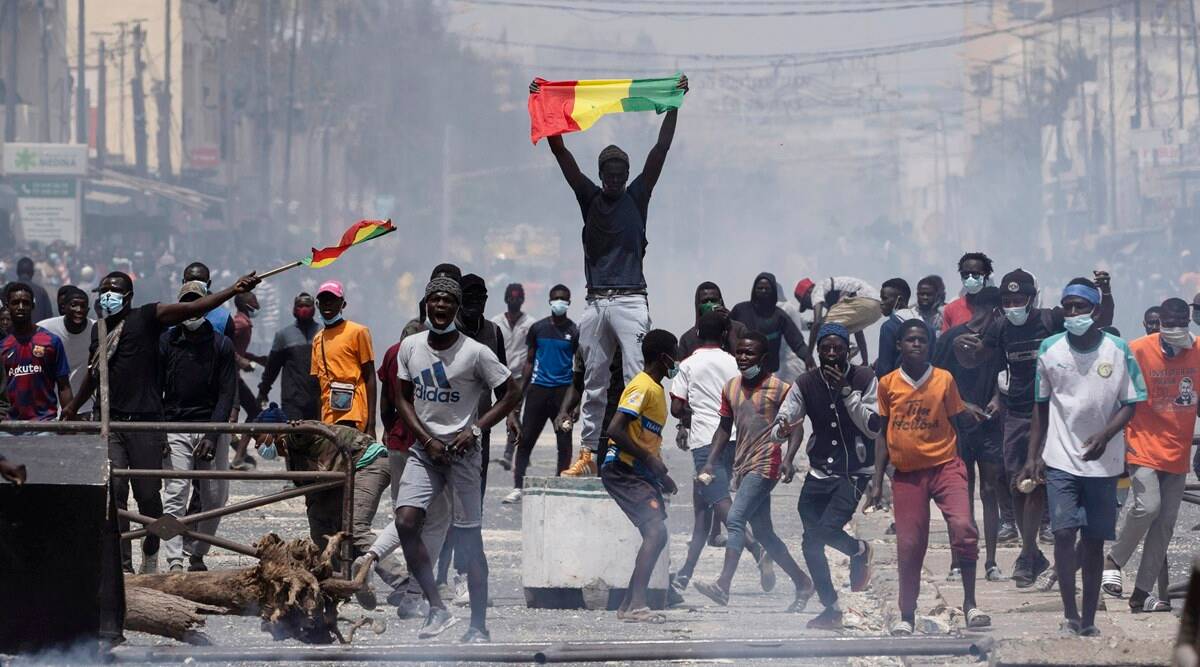Schoolboy Among Five Dead In Senegal Unrest
By AFP
A schoolboy was killed during violent protests in Senegal at the weekend, officials said, bringing the death toll from days of violence in the West African state to five.
Clashes first erupted between opposition supporters and security forces on Wednesday after the arrest of opposition leader Ousmane Sonko, and escalated into the worst unrest seen in Senegal in years.
People torched cars, burned and looted shops and hurled stones at police during the protests, which have highlighted longstanding grievances over living standards and economic exclusion.
On Saturday, people were demonstrating in the southern town of Diaobe against Sonko’s arrest, when the “situation quickly deteriorated”, a security official told AFP.
Protesters torched a gendarmerie station, a customs post and several cars, the official said on condition of anonymity.
A schoolboy was killed and six people were seriously injured in clashes, the official added, a toll confirmed by a spokesman for Senegal’s gendarmerie.
Four people were previously reported killed in the violence.
Senegal, a former French colony of 16 million people, is often heralded as a beacon of stability in a volatile region.
But about 40 percent of the population live below the poverty line.
The country is bracing for a fresh round of opposition protests starting on Monday, and the government has ordered schools nationwide closed for a week.
Sonko, 46, a fierce critic of the governing elite in Senegal, was arrested on Wednesday on charges of disturbing public order in the capital Dakar.
The move came after scuffles with opposition supporters broke out while Sonko was on his way to court to answer a separate rape charge — which he says is politically motivated.
An opposition collective which includes Sonko’s Pastef party on Saturday called for three more days of protests starting from Monday, urging people to “massively descend onto the streets”.
‘Gloomy economic situation’
Sonko, who is considered a key challenger to President Macky Sall, is also due back in court on Monday to answer to the rape charge.
He is a devout Muslim popular with youngsters and came third to Sall in the 2019 election.
But his political future was suddenly clouded last month when rape charges were filed against him by an employee at a salon where, he said, he went to receive back massages.
The allegation comes amid uncertainty over whether Sall, 59, will seek a third term in office.
Senegalese presidents are limited to two consecutive terms, but Sall launched a constitutional review in 2016, raising suspicions he intends to run again.
Other presidents in West Africa — such as Guinea’s Alpha Conde or Ivory Coast’s Alassane Ouattara — have used constitutional changes to win third terms.
On Saturday, the 15-nation Economic Community of West African States, which includes Senegal, urged all parties in the country to exercise restraint and remain calm.
ECOWAS also called on the government “to take the necessary measures to ease tensions and guarantee the freedom to demonstrate peacefully”.
Ndeme Dieng, an opposition member who tried to calm tempers during the demonstrations, said the vast majority of protesters were jobless youths.
“The gloomy economic situation has made people go out into the streets and show that they’re fed up,” he said.
On top of everyday pressures, coronavirus restrictions have also damaged livelihoods in a country where most people work in the informal sector.





